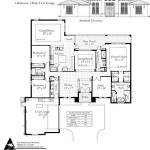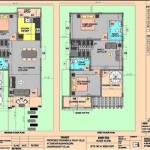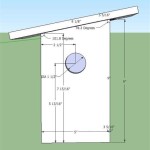Traditional Japanese Home Floor Plan: A Blend of Simplicity and Harmony##
Japanese homes exude a timeless elegance that reflects the country's rich cultural heritage. The traditional Japanese home layout is unique, prioritizing fluidity, natural light, and a profound appreciation for nature. Let's venture inside and explore the intricacies of a typical Japanese home floor plan. ### Genkan: The Welcoming Threshold ### As you cross the threshold into a traditional Japanese home, you'll encounter the genkan, or entrance area. This dedicated space serves as a transition zone between the outside world and the dwelling's interior. Shoes are removed here as a sign of respect and to maintain the pristine cleanliness of the home's interior. ### Washitsu: Living Areas with Tatami Flooring ### The heart of the home is the washitsu, a room featuring tatami mats, which are woven rice straw flooring. Tatami mats impart a sense of warmth and comfort underfoot and create a natural and serene ambiance. These rooms are typically used for entertaining guests, relaxing, and sleeping. ### Tokonoma: A Revered Alcove ### Within the washitsu, you may encounter a tokonoma, an alcove that holds a special place in Japanese culture. This alcove is often adorned with a scroll, a flower arrangement, or a cherished object that symbolizes the current season or a significant event. The tokonoma serves as a focal point of beauty and contemplation. ### Fusuma and Shoji: Sliding Doors and Screens ### Traditional Japanese homes feature sliding doors (fusuma) and screens (shoji) as dividers between rooms. These sliding panels are crafted from lightweight materials like paper and wood, allowing for effortless movement and an airy, open feel. They create a sense of fluidity and flexibility, facilitating the seamless transition between spaces. ### Engawa: A Connection with Nature ### The engawa is a transitional space, a verandah or porch that wraps around the perimeter of the home. It provides a seamless connection between the indoor and outdoor environments, blurring the boundaries between the two. The engawa invites the beauty of nature into the home, allowing occupants to enjoy the changing seasons and appreciate the surrounding landscape. ### Japanese Bathroom and Kitchen: Separate Entities ### Unlike Western homes, where the bathroom and kitchen are often integrated, traditional Japanese homes feature separate areas for these functions. The kitchen, known as the daidokoro, is typically compact and equipped with modern appliances, while the bathroom, or ofuro, is a sacred space where bathing is considered a ritual of purification and relaxation. ### Simplicity, Functionality, and Harmony ### Traditional Japanese home floor plans embody the principles of simplicity, functionality, and harmony. Every element is carefully considered, from the choice of materials to the layout of spaces, to create a living environment that promotes tranquility, balance, and a deep connection with nature. --- Japanese homes are more than just structures; they are expressions of a profound cultural philosophy that values nature, simplicity, and harmony. Their traditional floor plans reflect this philosophy, creating spaces that nurture a sense of serenity, well-being, and a profound appreciation for the beauty of everyday life.
Typical Home Layouts Differences Between Japan And Abroad

Traditional Japanese House Plan Style Plans

Traditional Japanese Home Floor Plan Cool House Plans Ideas Des Architecture Style

Hachidori Floor Plan Traditional Japanese House Courtyard Plans Home Design

Japanese Home Design Ideas Pictures 331 Sqm Homestyler

Prefab Japanese Pavilion Traditional Architecture

Typical Layout Of Japanese Traditional House Schoenauer 1962 Scientific Diagram

Traditional Japanese Architecture Tea Ceremony Japan Experiences Maikoya

Traditional Japanese House Floor Plan Google Search Architecture Japonaise Maison

The Layout Of Ground And First Floor A Traditional Japanese House Scientific Diagram








